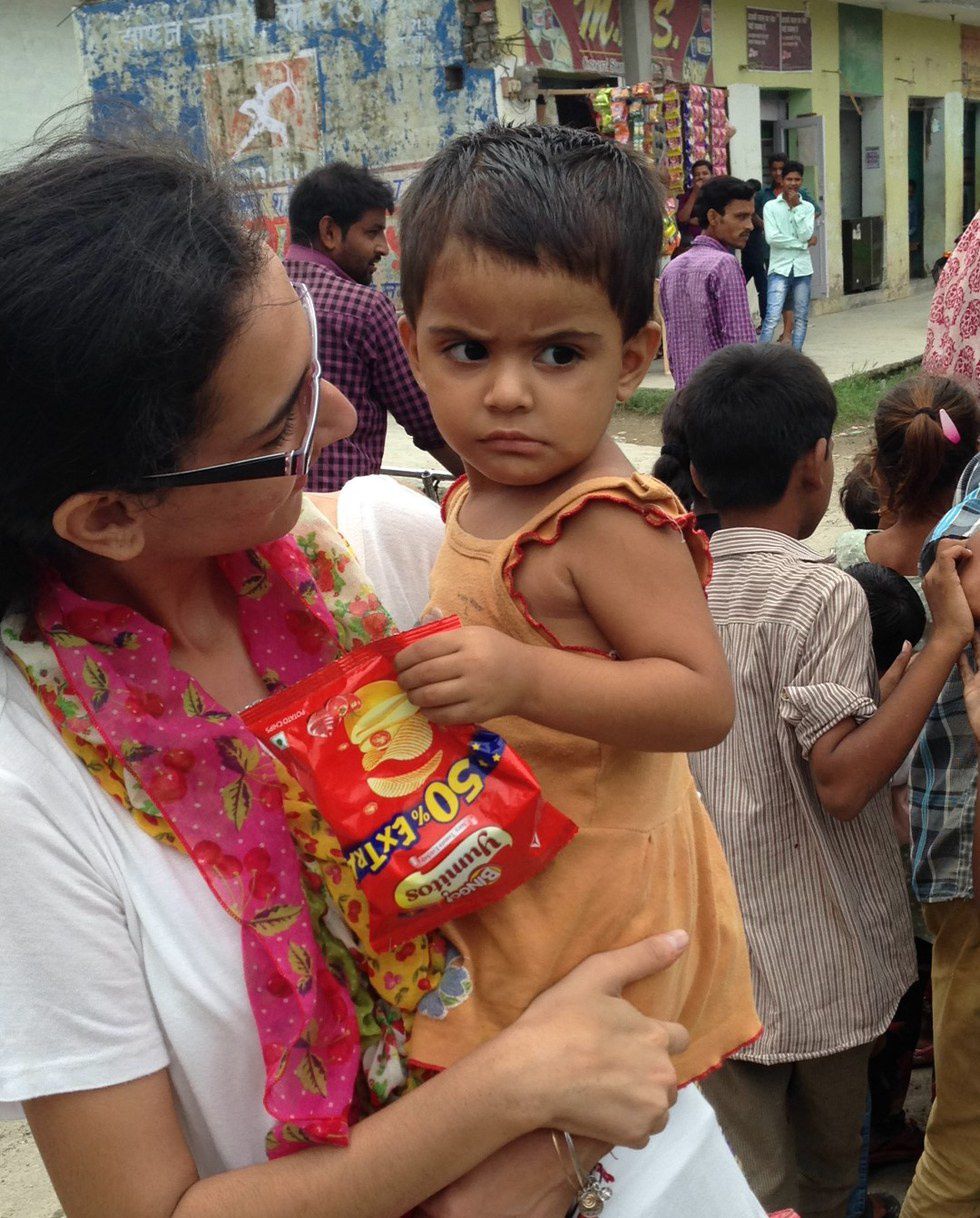As part of an active listening activity, I was asked to think about a time where I experienced my greatest joy and also think about a time where I experienced the biggest challenge in my life. I thought, "My greatest joy? That's easy. It was meeting Fatima." Then I thought, "My biggest challenge? It was also meeting Fatima." How could my greatest joy also be my biggest challenge?
I have heard that your struggles often lead to success and I never really thought much about that until now. As I reflected on how much effort and planning went into getting the chance to go to India and once there, meeting Fatima, I began to notice that my struggles did lead to success.
Fatima was four years old when I met her two summers ago.
My aunt told me a story about a rare occasion where she had the chance to go to a mazhaar in Rampur, India. The place she went to is known to Rampuris as Hafiz Sahab ki ziaraat, a Muslim shrine of a respected man named Hafiz Sahab. In Rampur, the poor tend to live in areas like this where they can be "close to God" and feel safe. My aunt went there to distribute food to the needy. She explained the way some of the elderly spread out their shirts, when plastic plates were gone, to collect food. I was so touched by her experiences that I made it my goal to have that same experience. I was about fourteen at the time.
Four years of working toward my goal and I finally managed to get myself to Rampur. I had gone through the struggles of the immigration and visa obtaining process, as I am Pakistani born but wanted to travel to India. I went through hell trying to convince my parents to let me spend my summer in Rampur. And then I went through the stressful and long process of setting up a non-profit organization on my own to collect donations for the poor.
But I did it.
Good story, right? The struggles continued. I arrived in Rampur with two suitcases full of donations for orphans and needy children, but had no way of distributing them. In Rampur, I was just a girl. I was seen as a crazy and daring girl - in a bad way. The culture shock I experienced definitely had its affects on me. I was there, and my goal was so close, literally, yet still so far. What stood between me and my goal was the conservative environment. I was not able to just go out and "do my thing." I needed a man to do it for me because a young woman such as myself could not possibly go out to the mazhaars and openly socialize and distribute the things I had brought.
At that point I fought the conservative cultural norms of a predominately Muslim town and I made my way to a small village in Rampur known as the Puraani Bahsti.
Everything had been going so completely against me and finally it all turned around. I arrived in my rickshaw with my little brother and mom and saw about thirty children begging a small shop owner for a drink of water. I got out of the rickshaw and bought the entire shop for the children to the owner's alarm -- he asked why I cared so much for the filthy children. The children then practically attacked me in order to get a bag of chips or a juice box. Amidst the chaos, at the bottom of the crowd of kids, we heard a little scream. It was a little girl, crying out for help as she was being trampled on by the other children with tears running down her face. I reached down and picked her up and that is how I met little Fatima.
Fatima is an orphan. Her mom died shortly after giving birth to her and her father disappeared after developing an addiction to drugs. Fatima lives with a lady who took her in when she heard of her father's disappearance in the village. The main income of her guardian is from making and sellingbeedis. Fatima's guardian makes fifty rupees for every thousand beedis made. Converted to U.S Dollars that is approximately seventy five cents.
My next goal is to send Fatima to school. I will struggle once again to get the chance to see her again and to pay for her education. She is a little bundle of joy that I was fortunate enough to have met because she changed my life. She taught me that some of the happiest people in the world don't necessarily have the best of everything, they just make the best of everything that they do have.






















